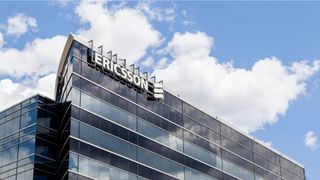BT taps Ericsson to help it strip Huawei from 5G network
The partnership will see Ericsson provide BT with RAN equipment in London, Edinburgh, Belfast, Cardiff, and other major UK cities

BT has signed a deal with Ericsson that will see the Swedish telecoms company to help it strip Huawei from its 5G infrastructure.
The partnership will see Ericsson provide BT with 5G Radio Access Network (RAN) equipment in London, Edinburgh, Belfast, Cardiff, and other major UK cities. Once the deployment is completed the company will manage around 50% of BT’s 5G traffic, with the remaining traffic set to be transmitted via Nokia’s RAN equipment.
Ericsson will also modernise BT’s 2G and 4G RAN infrastructure as part of the deal, which will include the deployment of its Spectrum Sharing solution which will enable BT to dynamically share 4G and 5G traffic to enable a fast and cost-effective migration to 5G.
Ericsson’s president and CEO Börje Ekholm said that “BT has a clear direction in how it wants to drive its 5G ambitions in the UK”.
“Having already been selected to partner in 5G Core, we are pleased to strengthen the relationship further with this deal that will deliver high performance and secure 5G to their customers across the UK’s major cities.
"By deploying 5G in these key areas, we are yet again demonstrating our technology leadership in population-dense and high traffic locations."
The announcement comes as a new report by Assembly Research, commissioned by Huawei, found that a delay in rolling out 5G could mean that the UK misses out £108 billion worth of economic benefit and the creation of 350,000 jobs over the next decade.
Get the ITPro. daily newsletter
Receive our latest news, industry updates, featured resources and more. Sign up today to receive our FREE report on AI cyber crime & security - newly updated for 2024.
In London alone, the delay in the 5G rollout - caused largely by the ban of Huawei infrastructure - could mean the city misses out on a potential economic uplift of £39.7 billion between 2020 and 2030, along with the creation of 139,000 new jobs.
Other regions set to hit by the delay were named as the North-West and the West Midlands, which are estimated to miss out on a combined £29.9 billion and 104,500 new jobs. The report also emphasised that the jobs at risk were not limited to the tech sector, but also applied to “white-collar and blue-collar workforces”.
Assembly’s founder and principal analyst Matthew Howett warned of “a risk of a widened digital divide”.
“The government’s own expectation of its restrictions on Huawei is for up to a 3 year delay in 5G roll-out.
"The risk of course is that this will be felt by operator’s being forced to focus their deployments in more profitable urban centres and that would inevitably mean it takes longer to reach, and fully cover, more rural and remote parts of Britain with 5G."
Having only graduated from City University in 2019, Sabina has already demonstrated her abilities as a keen writer and effective journalist. Currently a content writer for Drapers, Sabina spent a number of years writing for ITPro, specialising in networking and telecommunications, as well as charting the efforts of technology companies to improve their inclusion and diversity strategies, a topic close to her heart.
Sabina has also held a number of editorial roles at Harper's Bazaar, Cube Collective, and HighClouds.





